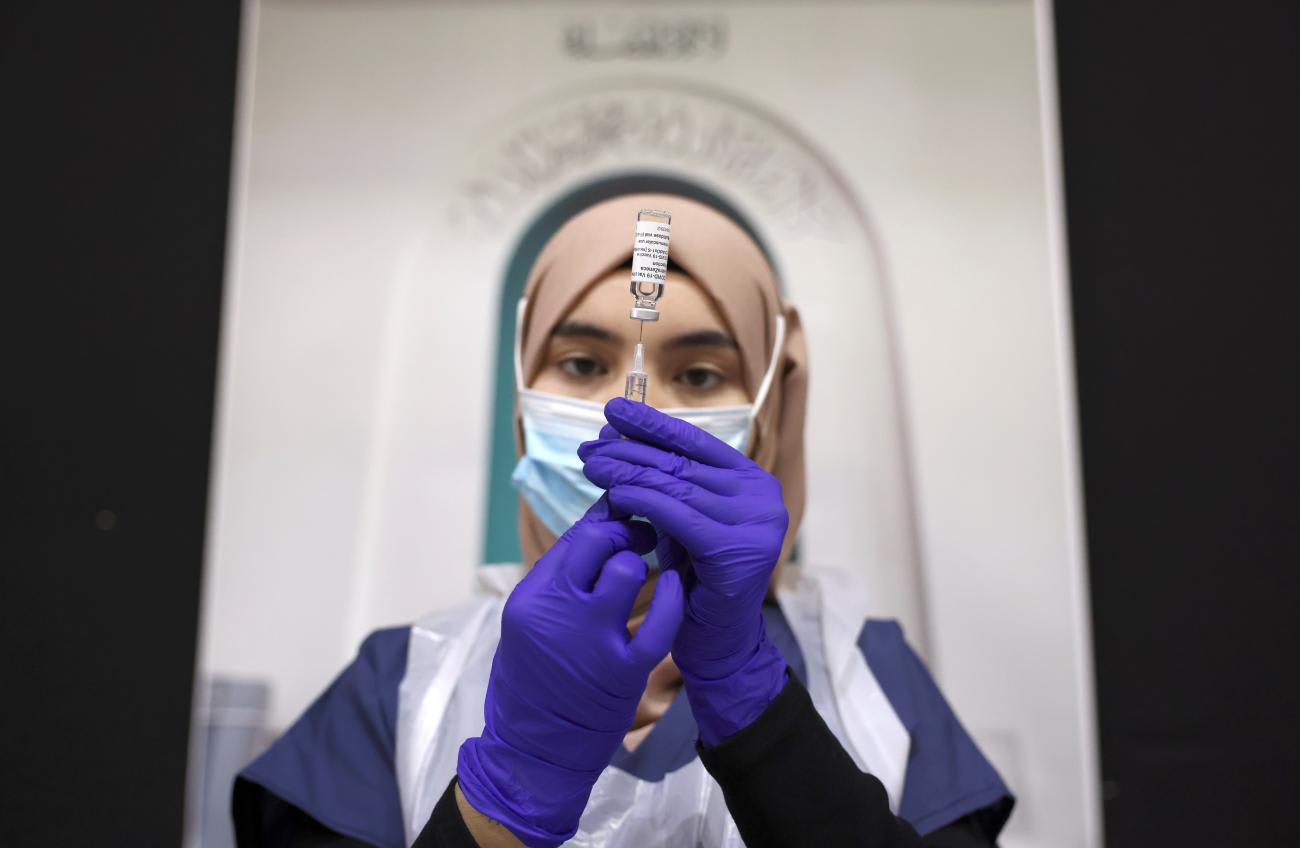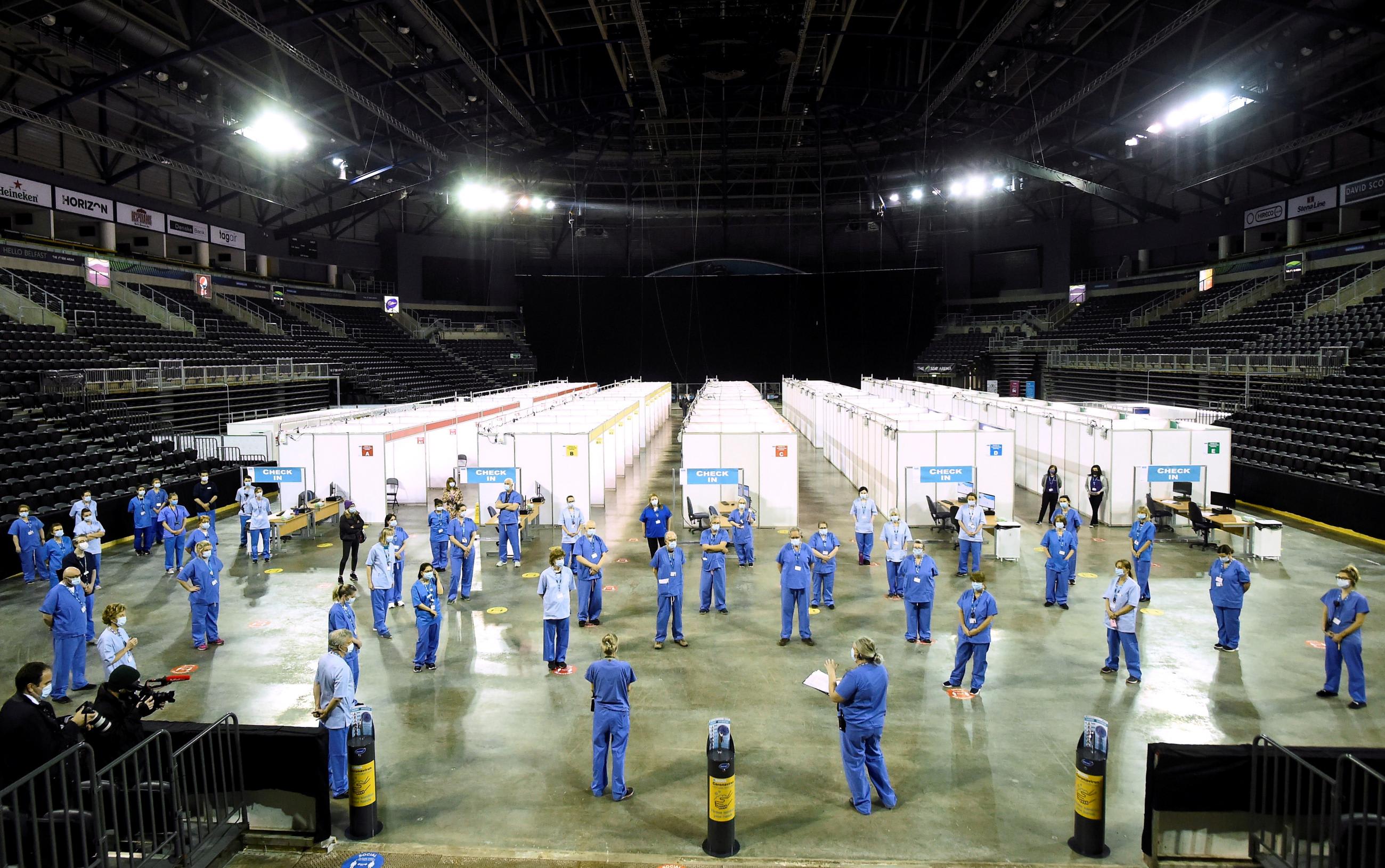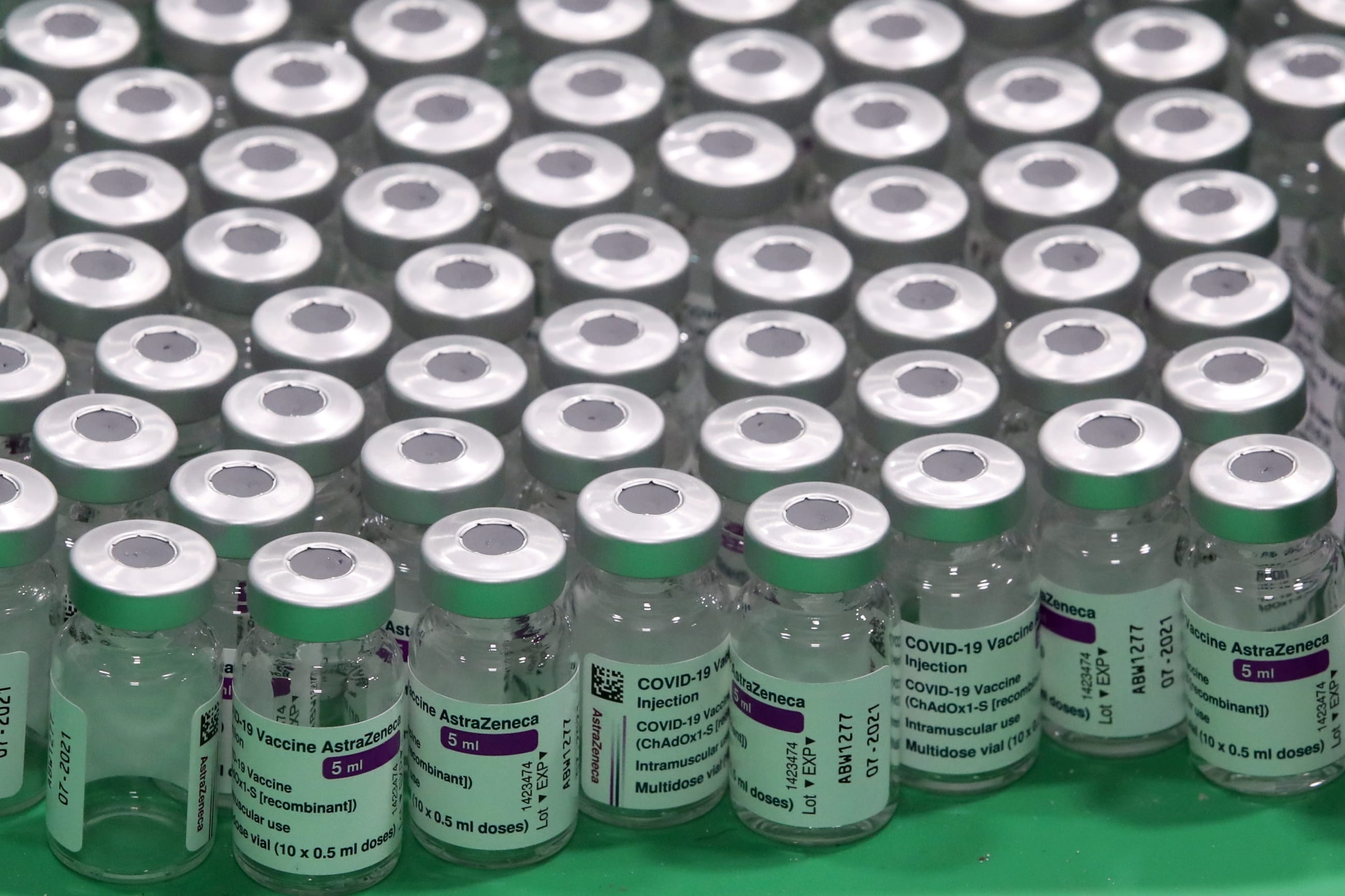Most scientists or clinicians would be relieved at the thought of their family members, patients, and friends receiving any of the approved COVID-19 vaccines, including the AstraZeneca vaccine recently named Vaxzevria and its generic formulation Covishield. With three billion doses of this low cost and easy to store vaccine expected by the end of 2021, it is poised to bring relief to the world — but it has also received wildly confusing media coverage, including recent reports of rare blood clots. These events could give pause to people already anxious about vaccines, who may choose to delay vaccination for a "better" shot or worse to forgo vaccination entirely.
This could have a particularly deleterious impact on countries where vaccine hesitancy is high, and where the AstraZeneca's vaccine is the only available option to protect against COVID-19. Because of concerns about the transparency of phase III trials for vaccines produced by Chinese pharmaceutical companies Sinopharm, Sinovac and Cansino and the Russian company Gamaleya, they have not yet been approved by the World Health Organization, leaving many countries with limited options. Formulations of the AstraZeneca vaccine make up 99.5 percent of the first round of doses the COVAX initiative has allocated for distribution to over 100 low- and middle-income countries.
Formulations of the AstraZeneca vaccine make up 99.5 percent of the first round of doses COVAX has allocated for LMICs
With the continued rise of COVID-19 cases worldwide and vaccines presenting the most powerful tool to control the pandemic, the mantra: "The best shot is the shot in your arm" has emerged as a rallying cry of vaccine advocates everywhere. Given the complex considerations, it may not be sufficiently reassuring or compelling alone — but despite AstraZeneca's rocky start, it remains an important tool for fighting this pandemic.
Effective Protection
AstraZeneca's vaccine gets an A+ in the one metric that matters most: In multiple large phase III trials globally, this vaccine was 100 percent effective in preventing people from dying of COVID-19. That includes for people with pre-existing conditions that put them at increased risk for severe disease.
In clinical trials the vaccine has also shown 60 percent to 74 percent efficacy in preventing symptomatic infection of any kind, higher than the 50 percent threshold the World Health Organization set at the beginning of the pandemic. Efficacies between trials and between vaccines are not directly comparable because they each took place in environments and at times where different strains of the virus were circulating and at different prevalence. But show that among those 70 and older, people who received the first shot of AstraZeneca vaccine were just as protected from symptomatic illness as people who received one shot of Pfizer's mRNA vaccine.

Viral Variants
Clinical trials for most COVID-19 vaccines were completed prior the emergence of viral variants that are now circulating widely. Even with incomplete data, there are reasons to think current vaccines will afford some protection against the variants and will help slow their spread.
The immune system is comprised of two main arms: responses that produce antibodies which bind to viruses like jigsaw puzzle pieces in order to inactivate them, and those that activate T-cells. Studies have shown that antibodies generated by the AstraZeneca vaccine may not bind some viral variants as efficiently, but most of these in-vitro studies have not assessed the important T-cell responses, which recognize specific pieces of the virus on infected cells and kill them, preventing them from turning into virus-producing factories and stopping progression of an infection to severe disease.
Even with incomplete data, there are reasons to think current vaccines will afford some protection against variants and will help slow their spread
For example in a small clinical trial, when scientists looked at the pieces of the coronavirus that T-cells recognize, around 86 percent were unchanged between the original virus and the B.1.351 variant that was first identified in South Africa. Studies of other variants of concern, B.1.1.7 variant first identified in the United Kingdom and the P1 variant first identified in Brazil have also shown that individuals vaccinated with the AstraZeneca vaccine generate T-cells capable of recognizing these variants. This is preliminary but suggestive evidence that the T-cells activated by the AstraZeneca vaccine are likely to recognize these variants, mitigating the risk of severe COVID-19 and further spread of the variants.
Safety and Pharmacovigilance
In phase III clinical trials of AstraZeneca's vaccine, where 28,000 people across four continents participated, there were no concerning indications of dangerous side-effects. But during wider rollout of the vaccine in Europe, there were isolated cases of unusual blood clotting. The European Medicines Agency reviewed outcomes for over 20 million people who had received the vaccine and identified a subset of cases characterized by a rare clotting disorder associated with low platelets, that could potentially be linked to vaccination.
As with any medical intervention of this scale, adverse events like this are cause for closely re-evaluating the benefits of the intervention versus the potential risk. If the adverse events are found to be associated with specific characteristics of the individuals affected, public health authorities can better tailor the vaccine to subgroups who are not at risk.
Delaying a vaccine that is available today for a "better" vaccine in the future would be a grave error
But in areas with high community transmission of COVID-19, the benefits of the AstraZeneca vaccine almost surely outweigh the risk of getting COVID-19, especially for vulnerable individuals with underlying conditions and for frontline health workers with high risks for exposure. COVID-19 itself is associated with a significantly increased risk of blood clots and long-lasting symptoms after recovery.
It is also noteworthy that these rare events were only identified thanks to the pharmacovigilance of many countries rolling out the AstraZeneca vaccine. And researchers and policymakers have responded with treatment guidelines, greatly mitigating risks of bad outcomes associated with these rare clots.
We Will not Reach Herd Immunity Overnight
At a time when COVID-19 is still circulating widely in communities across the globe, delaying a vaccine that is available today for a "better" vaccine in the future would be a grave error. In most places, it is not a matter of if you will come in contact with the virus but a matter of when. Getting vaccinated will ensure that when you do encounter the virus, you will have some measure of protection to keep you safe and out of the hospital. The sooner we all get vaccinated, the quicker we can return to normal. The way to make that happen is to take the first approved shot that is offered to you.













